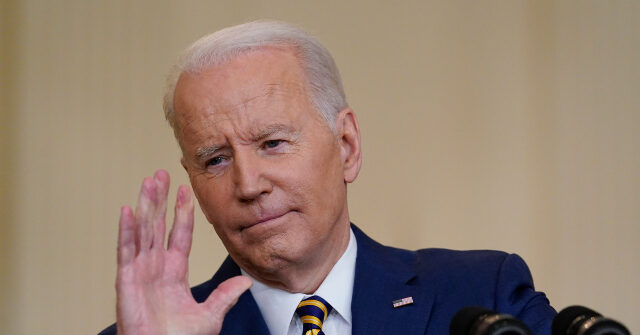Andrea Flores, the Vice President of Immigration Policy & Campaigns at FWD.us, argues that voters have increasingly backed Donald Trump due to the perceived mismanagement of immigration policy under President Joe Biden. In a December 6 interview, Flores expressed her view that Democratic leadership has not effectively addressed immigration reform since Biden took office, leading to a significant political shift to the right. She emphasized that when voters witnessed issues at the border and in urban areas, they leaned towards Republican solutions, which were perceived as more coherent amidst the chaos. Flores attributed this political move to dissatisfaction with Biden’s governance on immigration issues, stating that voters felt they weren’t receiving clear policy direction from the administration.
Interestingly, FWD.us, a coalition of consumer-economy investors, has played a pivotal role in shaping the Biden administration’s immigration policies. Alejandro Mayorkas, the Secretary of Homeland Security and an ally of FWD.us, has overseen border policies that facilitated the arrival of approximately nine million additional workers, consumers, and renters. While this policy has yielded substantial financial gains for FWD.us investors, it has reportedly come at the expense of lower wages and diminished career prospects for many Americans, particularly recent college graduates. Flores’ assertions about the Biden administration highlight a larger tension where the interests of investors have overshadowed the needs of voters and workers, raising questions about the overall approach toward immigration reform.
The political landscape has become increasingly complex, particularly as Biden’s zig-zag approach to immigration has not satisfied either voters or investors. A December 5 report from The New Yorker suggested that staff within the White House recognize immigration as a central issue in the Democratic Party’s electoral losses, steering the leadership away from decisive actions that could reinforce a perceived failure in policy strategy. This reflects a broader acknowledgment of the political ramifications of immigration views among various demographic groups, especially Latino Americans, who some analysts claim have been misunderstood in terms of their support for mass migration policies. The discrepancies in these narratives suggest a misalignment between the Democratic leadership’s perception of voter sentiment and the realities faced by communities affected by immigration.
The interplay of investor interests and progressive politics within the Democratic Party is epitomized in Flores’ dual role as an advocate for both increased migration and the rights of longtime undocumented residents. She positions herself as a voice for marginalized immigrants, ultimately suggesting that systemic political failures have perpetuated the undocumented population in the U.S. Nevertheless, her affiliation with FWD.us raises questions about the impact of new immigration flows on existing undocumented communities already facing challenges. Flores claims that the lack of a legal pathway for longtime undocumented individuals heightens their vulnerability, making the push for immigration reform and new visa programs critical to alleviating their circumstances.
Flores posited that a “secure border” should entail a functional asylum system, reducing reliance on human smuggling for immigration access. However, this vision requires lawmakers to be proactive in creating additional visa categories to meet industry demands. She reflects a broader sentiment among pro-migration advocates who recognize that effective messaging is essential for reshaping public perceptions. Flores criticized past narratives associated with Biden’s immigration style as failures and called for renewed efforts to articulate the economic and civic advantages of comprehensive immigration reform to win public support.
As the political winds shift with Trump’s potential return to the White House, Flores emphasized the importance of engaging diverse communities in discussions about immigration. She underscored the significance of aligning policy initiatives with grassroots sentiments to counter any backlash that could arise from Trump’s administration. Thus, Flores and FWD.us appear poised to leverage the forthcoming electoral cycle to redress the fractures created by previous immigration policies, focusing on communication and community engagement to restore a sense of balance between investor interests and the realities of American voters’ concerns over immigration.

